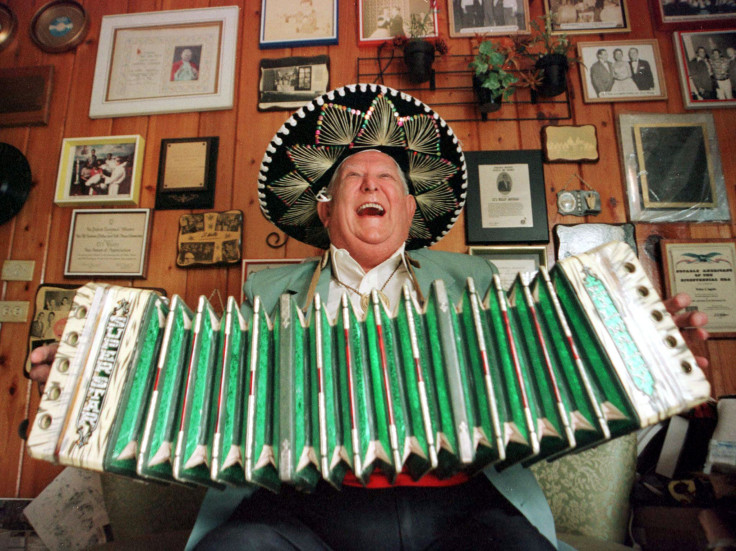Polka Please: The History Of The National Polka Festival

Founded in 1967 as a celebration of polka music and dancing, the National Polka Festival has grown to become an annual event attended by polka lovers across the country.
Held each year in Ennis, Texas, the festival attracts as many as 50,000 visitors to the town. Featuring live bands, dance contests and even a massive parade, the weekend-long event is packed with exciting activities for attendees.
But how much do you really know about the event? In celebration of it’s 47th year of sharing the excitement and artistry of polka, we’ve gathered five facts you need to know about National Polka Festival.
1. It Was Initially The Idea Of Three Ennis, Texas, Residents
Raymond Zapletal, Len Gehrig, and Joe Liska first crafted the idea of holding a Polka festival after witnessing the popularity of Polka bands in cities around them, says the National Polka Festival site. They presented the idea to the Ennis Chamber of Commerce in 1967, and Chamber manager jack McKay agreed that the festival could be beneficial to the city and its Czechoslovakian community. To festival is now planned and executed each year by the Polka Festival Committee, Chamber of Commerce, and the Ennis Convention & Visitors Bureau.
2. The Festival Experienced Rapid Growth In Its Early Years
Just three years into its existence, the festival had grown to attract as many as 30,000 people from across the country.
3. It’s Not Just About Dancing
There are tons of activities to take part in during the weekend. Obviously there is a Kolache eating contest, arts and crafts, tons of food and the festival’s huge parade, which is actually one of the largest in the surrounding area.
4. Everything Must Be Czech Themed
There are no exceptions to this rule. Every parade entry, street dance, performance and band must have a Czech theme and play Czech music.
5. Ennis’ Three Fraternal Halls Are Key To The Festival Events
Ennis is home to three fraternal halls, and they play an important role in the festival activities. The halls typically host to weddings, dances and meetings. But during the weekend of the Polka Festival, they are where many of the dances and daily activities are held.
© Copyright IBTimes 2024. All rights reserved.






















